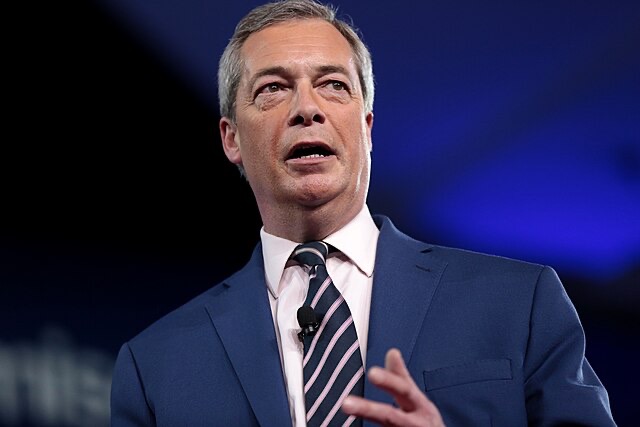In a provocative new policy stance, Reform UK leader Nigel Farage has declared that the NHS should no longer be funded solely through general taxation, arguing that the system “isn’t working” and that wealthier Britons should pay more to support healthcare services. The comments—made during a televised interview—have reignited fierce debate over the future of the UK’s most cherished public institution.
Farage’s Critique of the NHS Model
Farage did not hold back in his criticism of the NHS, stating:
“The system isn’t working. We’re not getting value for money. Everyone knows it. Everyone knows we need reform.”
He pointed to long waiting times, repeated NHS staff strikes, and ballooning costs as evidence that the current model—largely funded through income tax and National Insurance—is failing to deliver efficient, equitable care.
Why He Believes the System Is Broken
Farage’s argument hinges on the belief that universal, tax-funded healthcare has reached its limits. He compared the NHS to international systems that combine public support with private insurance contributions, claiming that other countries, like France and Germany, get better results for patients.
He added that the wealthy in Britain, who can afford more, should contribute more directly—instead of expecting the same care funded by a tax model that burdens working families.
A Radical Proposal: Shift Away from General Taxation
Farage’s suggestion represents a major policy shift: moving away from the foundational NHS principle of being free at the point of use and funded primarily by general taxes.
Instead, he floated the idea of increased personal responsibility and direct contribution, especially from higher earners.
Inspiration from Abroad: A French-Style Model
He proposed that Britain could emulate France’s insurance-based healthcare system, where:
- Patients pay upfront for treatment
- Health insurance reimburses most or all of the cost
- People can choose public or private providers
While Farage hasn’t outlined a detailed plan, he emphasized that care must remain accessible for those who cannot pay, possibly through taxpayer-funded subsidies or a hybrid system.
Political Reactions: Labour and Others Push Back
Farage’s remarks drew immediate condemnation from Labour. Health Secretary Wes Streeting warned that such a shift could lead to:
- “Eye-watering bills” for patients
- A dismantling of the NHS as we know it
- Increased inequality in access to healthcare
Streeting added, “Nigel Farage wants to replace the NHS with a system where being sick becomes a financial burden on working families. It’s dangerous, unfair, and un-British.”
What Would It Cost the Public?
Experts have warned that adopting a French-style model could mean patients paying hundreds or even thousands of pounds per year in upfront costs—before being reimbursed.
Critics argue that:
- Older adults, students, and low-income workers could struggle
- The complexity of reimbursement might create bureaucratic chaos
- The NHS’s founding principle—universal care—would be eroded
Public and Expert Response
Health policy analysts are divided. Some agree with Farage that the NHS is in crisis, and new funding models should be explored. Others warn that privatizing elements of healthcare has backfired in countries like the U.S.
Public opinion is also mixed:
- Some polls show support for reform, especially among young professionals
- Others reveal deep resistance to changing the NHS’s tax-funded roots
Social media responses to Farage’s interview ranged from outrage to cautious support, with many calling for a national debate on sustainable healthcare.
Reform UK’s Broader Healthcare Vision
While Farage is the face of Reform UK, it remains unclear if his views represent a full party policy platform. The party has not released a detailed healthcare manifesto, and insiders suggest there’s division among party leadership over how far to go in reforming NHS funding.
The NHS: Strained but Still Supported
Despite its current challenges, the NHS remains one of the UK’s most trusted institutions. For millions of Britons, access to free healthcare is a non-negotiable right. Political leaders who challenge that status quo must navigate intense public scrutiny and emotional backlash.
Nonetheless, calls for reform are growing, and Farage’s comments—controversial as they are—may spark the national conversation that health experts have long urged.
Conclusion
Nigel Farage has thrown a political grenade into the NHS debate by calling for an end to its exclusive reliance on general taxation. While critics see his proposal as a pathway to healthcare inequality, supporters argue it’s a realistic reckoning with a broken system.
As the UK gears up for its next general election, one thing is clear: how we fund and fix the NHS could be a defining issue for years to come.
FAQs
Q1: What exactly did Nigel Farage propose?
A: He called for the NHS to be funded less by general taxation and more by individual contributions, especially from the wealthy, possibly through an insurance-based model.
Q2: What’s the French healthcare system like?
A: Patients pay upfront for care, and are later reimbursed by public or private insurance. The system offers both public and private treatment options.
Q3: Would Farage’s plan make the NHS private?
A: Not entirely. He insists healthcare should still be free for those in need but wants a hybrid system where higher earners pay more directly.
Q4: How has the government responded?
A: Labour has condemned the idea, warning it would hurt working families and dismantle the NHS’s founding principles.
Q5: Is the public in favor of this change?
A: Public opinion is mixed, with many wary of abandoning the NHS’s free-at-point-of-use model despite calls for reform.



